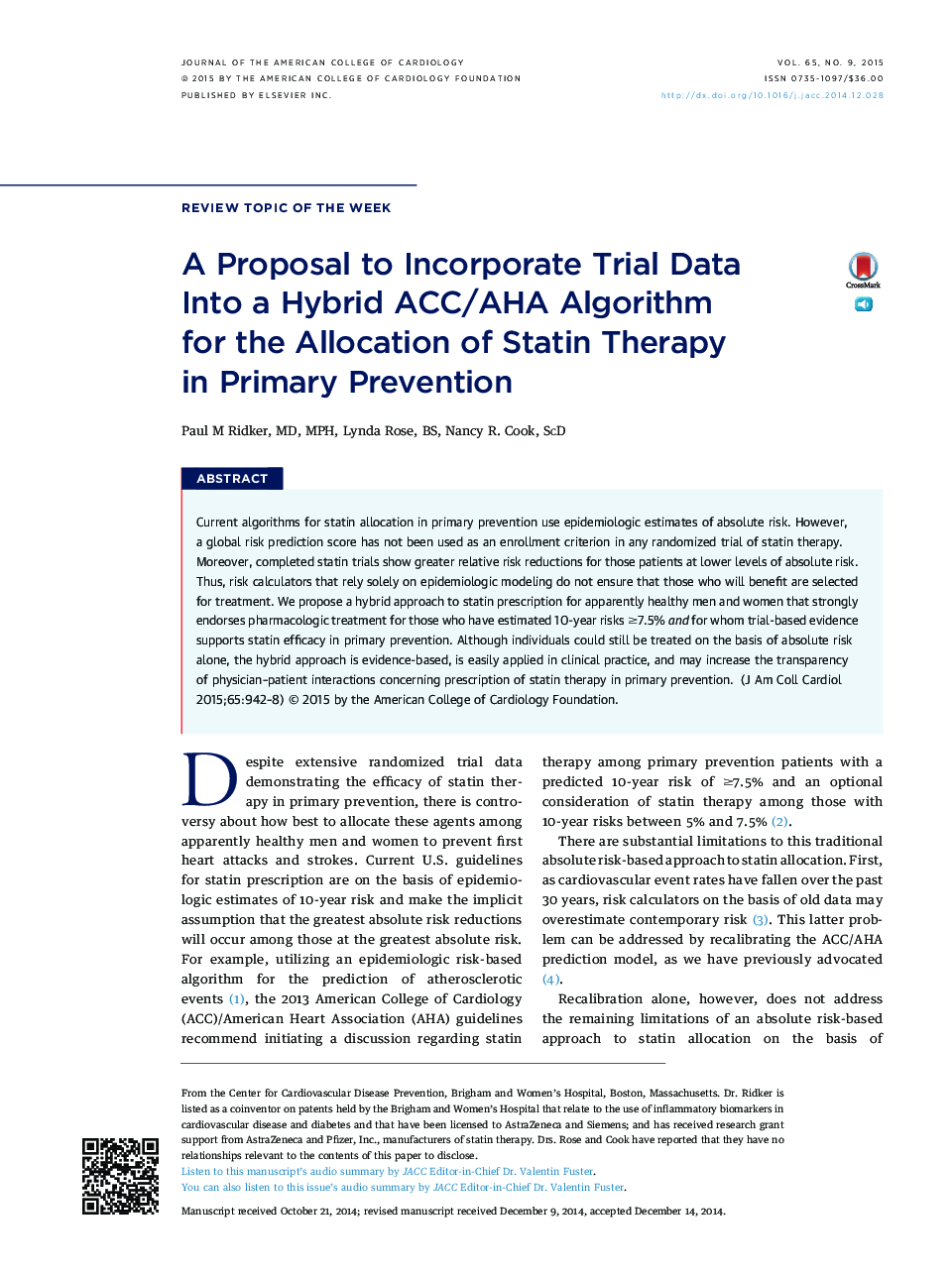| Article ID | Journal | Published Year | Pages | File Type |
|---|---|---|---|---|
| 2944671 | Journal of the American College of Cardiology | 2015 | 7 Pages |
Current algorithms for statin allocation in primary prevention use epidemiologic estimates of absolute risk. However, a global risk prediction score has not been used as an enrollment criterion in any randomized trial of statin therapy. Moreover, completed statin trials show greater relative risk reductions for those patients at lower levels of absolute risk. Thus, risk calculators that rely solely on epidemiologic modeling do not ensure that those who will benefit are selected for treatment. We propose a hybrid approach to statin prescription for apparently healthy men and women that strongly endorses pharmacologic treatment for those who have estimated 10-year risks ≥7.5% and for whom trial-based evidence supports statin efficacy in primary prevention. Although individuals could still be treated on the basis of absolute risk alone, the hybrid approach is evidence-based, is easily applied in clinical practice, and may increase the transparency of physician–patient interactions concerning prescription of statin therapy in primary prevention.
